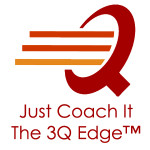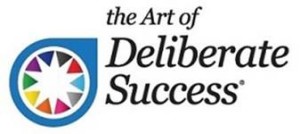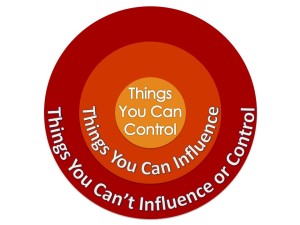Guest Post: Healthy Workforce, Healthy Company – How To Stop Your Employees Going Off Sick by Gemma Sutton

It is estimated that absenteeism and compensation due to workforce sickness costs the US economy around $576 billion annually [1]. If your business is plagued by constant gaps in the employee roster due to ill health, it can be intensely frustrating. Productivity is slowed, and the strain begins to show on other employees as they take up the slack dropped by their sick colleagues. Many employers, understandably annoyed by the drain on human resources, may be tempted to take a hard line on employee sickness – removing benefits from the persistently ill, for example. However, this kind of thing can be deeply counterproductive in the long term. In fact, if one wishes to successfully manage a healthy workforce, taking the opposite approach to sickness and employee welfare may be what is required. Of course, there is a delicate line to tread between overindulgence and keeping one’s workforce happy and healthy – but a manager who is in touch with their employees should be able to use the skills of judgement and management taught by Irene Becker to navigate this line with ease.
Benefits Of A Healthy Workforce
The benefits of a healthy workforce are fairly obvious. Plenty of companies offer their workers health insurance as part of their employment package [2], not only because it provides a wonderful incentive for joining the company, but because successful CEOs are well aware of the fact that healthier workers are a lot more productive [3]. It is thus in every business’s best interests to look after the health of its employees. Workers who lack access to basic healthcare are likely to not only work poorly themselves, but may even affect the health and morale of those around them. An employee with an infectious cold, for example, would be advised to take a few days off and visit the doctor, thus healing themselves quickly and not spreading the virus to their colleagues. An employee who lacks access to cold medicines, however, is aware that their cold will linger for a long time and may decide to ‘power through’ and come into work rather than lose a lot of work hours waiting for their cold to pass. These people, although they have the best intentions, will not only be far less productive themselves due to their condition, but are likely to reduce overall productivity by spreading the virus around the workforce, thus exacerbating the problem tenfold. A company which not only puts healthcare help in place but encourages employees to take days off when needed in order to recover is thus helping itself a lot in the long term.
Benefits Of A Happy Workforce
Of course, not all illnesses are viruses. One of the major issues facing American business today is that of stress and related mental health disorder. Workplace stress is higher than it has ever been, and to brush it off as a natural part of our socio-economic situation is a big mistake [4]. Stress, apart from being extremely unpleasant in its own right, causes all manner of other conditions. On one level, chronic stress has been shown to hinder the functioning of the immune system [5], meaning that stressed employees (through no fault of their own) are likely to need more sick days. On another level, stress leads to mental health conditions like depression, which can lead to an employee removing themselves for long periods from the workforce (as well as having an absolutely horrible effect on their own lives, for which a sensitive employer should have a degree of empathy!) Depression is currently having a profoundly serious effect upon the Western workforce, and economists are concerned about wider economic impacts [6] if depression and stress levels continue to rise. The malaise associated with depression means that an affected person may take sick days because they simply cannot face their work. The temptation for employers is to tell them to get themselves together and come in unless they’re physically unable to – but to do so is to fail to appreciate that a mental health condition is just as debilitating as a physical health condition. If your workers are taking a lot of seemingly unexplained sick days, it may be time to look at how you can make conditions better, happier, and less stressful for them rather than taking the hard line. A happy workforce is a much healthier and more productive one.
Read more: Win the Race with 5 Wolves/Challenges Facing the Best and Brightest Among Us-Build YOUR Edge!
Malingerers
Of course, however congenial and healthy you make your working environment, there will always be chancers who try to take advantage of a sickness policy. It is often hard to distinguish such people from those who are genuinely in need of time off. However, turning a blind eye to such things can be just as damaging as forcing someone to come in when they are ill. There is no clear solution to this problem – but a manager who involves themselves with their workforce, and takes the time to get to know their employees should be able to intuitively understand when someone is taking advantage, and when someone is genuinely suffering. If you are in doubt about how to get to know and manage your workforce more effectively, Irene Becker can help!
[1] Bruce Japsen, “U.S. Workforce Illness Costs $576B Annually From Sick Days To Workers Compensation”, Forbes, Sept 2012
[2] Quotezone.co.uk, “Health Insurance”
[3] Centers For Disease Control And Prevention, “Increase Productivity: Workplace health programs can increase productivity”, Oct 2013
[4] American Psychological Association, “Stress in the workplace”
[5] American Psychological Association, “Stress Weakens The Immune System”, Feb 2006
[6] Daniel Schafer, “Banks fear effects of stress on workforce”, Financial Times, Apr 2014
Photo Credit: Big Stock Photo
Author Bio: Gemma (Sutton) is a freelance writer and mother. She began working life in the financial sector but parenthood meant a change of pace and writing means she can work around family commitments. She is passionate about business writing that has equal benefit for the reader and the company.
More on Building a Healthy and Happy Workplace? YOU Betcha!
Ten Ways to Build Workplace Happiness (and Productivity!)
Winning the War Destroying Organizations From Inside Out
Building a Thriving Organization
Enlightened Self Interest-Building a Thriving, Resilient Culture
Ten Ways to Lead and Succeed in Times of Complexity and Changing
3Q and REACH Benefits-Why I have dedicated my life to furthering both
Success in Disruptive Times-Ten Ways to Restore Your Roar
Do you want to get motivated and inspired? Transform a people-centric leadership, business development, communication or career challenge into an advantage? Build sticky coaching, training and mentoring initiatives? We are here to help you lead, communicate and succeed forward at the speed of change; face to face, by telephone, skype or video conferencing.

Irene Becker, Chief Success Officer
Just Coach It-The 3Q Edge™ | (IQ-EQ-SQ)
Coaching•Consulting•Workshops•Keynotes
irene@justcoachit.com Twitter @justcoachit
Tel: (1) 416-671-4726 Skype: beckerirene
Tel: Irene’s Assistant Drew Jones: 416-737-5075 drew@justcoachit.com




